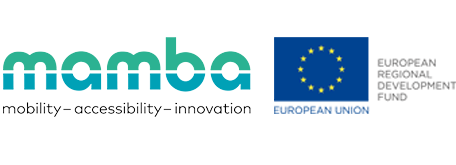Catch up with the graphical recordings of the MAMBA Final Web Conference
Over the course of three years, the MAMBA project has introduced several innovative measures to meet the challenge of rural mobility in the Baltic Sea region. The final outputs shall support the promotion of sustainable “people-to-service” and “service-to-people” mobility solutions in rural areas and can be found here. The MAMBA Final Web Conference series “No future for Rural Europe? Breaking the vicious circle with successful mobility and accessibility solutions”, held in three sessions, presented the outcomes of the project and brought in perspectives from outside MAMBA. The series demonstrated how the MAMBA partners collaborated to improve rural mobility through the integration of existing mobility structures with innovative mobility solutions like Transport on Demand, or ride sharing in so-called mobility centers. Also, a number of distinguished experts and practitioners shared their novel projects and experiences which altogether made a great learning opportunity for all participants.
While the Final Conference is over, we are excited to present the graphical recordings of all of its three sessions. They were recorded by Kitty, an artist from Ellery Studio in Berlin, who has captured the essence of the talks in her impressive artwork. Watch the process of drawing them up in action below, as well as the conference elaboration in the reports.
Session#1 Setting the Scene, Exploring the Challenges
MAMBA_Final_Web_Conference_Session1_Conference_report.pdf
Session#2 Breaking the vicious circle with successful mobility and accessibility solutions – Stories from MAMBA & beyond
MAMBA_Final_Web_Conference_Session2_Conference_report.pdf
Session#3 How can mobility policies open the road for better mobility and accessibility in rural areas?
MAMBA_Final_Web_Conference_Session3_Conference_report.pdf
If you have missed out on any of the conference sessions, you can also visit the sections on our website to find full summary including the recordings:






















